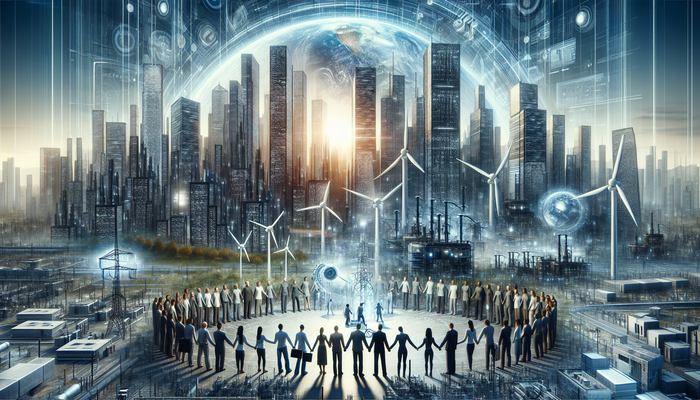During a significant gathering at the World Economic Forum in Riyadh, Saudi Arabia, the UAE’s Minister of Energy, Suhail Al Mazrouei, aligned with JPMorgan’s call for a sober reappraisal of the energy transition timelines and objectives, emphasizing the intricate challenges on the road to achieving net-zero emissions.
Global Factors Influencing Energy Transition
The complexities of transitioning to a net-zero economy are multifaceted, shaped by various global dynamics. Recent assessments by JPMorgan have shed light on issues including escalated interest rates, ongoing inflation, and persistent geopolitical tensions in regions like Ukraine and the Middle East, all contributing to delays and reevaluations of set targets. Specifically, these economic factors impact investment capacities in critical sectors such as renewable energy and nuclear power, which are essential to the global energy transition.
Financial Implications on Energy Projects
A report from energy consultancy Wood Mackenzie highlights that the rising interest rates have notably increased the financial burden on transitioning efforts. Renewable energy sources and nuclear power, characterized by their capital-intensive nature and comparatively lower returns, are particularly vulnerable to these economic shifts. This financial landscape demands a recalibration of strategies to sustain progress in the energy sector.
Adjustments in Energy Policies and Targets
Varied responses to the financial and economic challenges have been observed worldwide. For instance, the Scottish government recently withdrew its ambitious 2030 climate objectives due to stringent budget constraints imposed by the UK central government. Additionally, major oil corporations such as BP and Shell have recalibrated their climate goals within this year, reflecting a broader trend of redefining energy strategies amid prevailing global uncertainties.
Conclusion
The dialogues and revelations from global leaders and financial assessments underline a critical message: the pathway to a sustainable and net-zero global economy is fraught with economic and geopolitical challenges that necessitate pragmatic and flexible policy frameworks. Countries and corporations alike must adapt their strategies to address these multifaceted challenges effectively.
As nations like the UAE aim to significantly boost nuclear capacity by 2050, the global community must engage in continuous dialogue and cooperation to align their energy transition strategies with the evolving economic realities.
…
This article originally appeared on Medium.com. Click here to view the original article and to comment.
